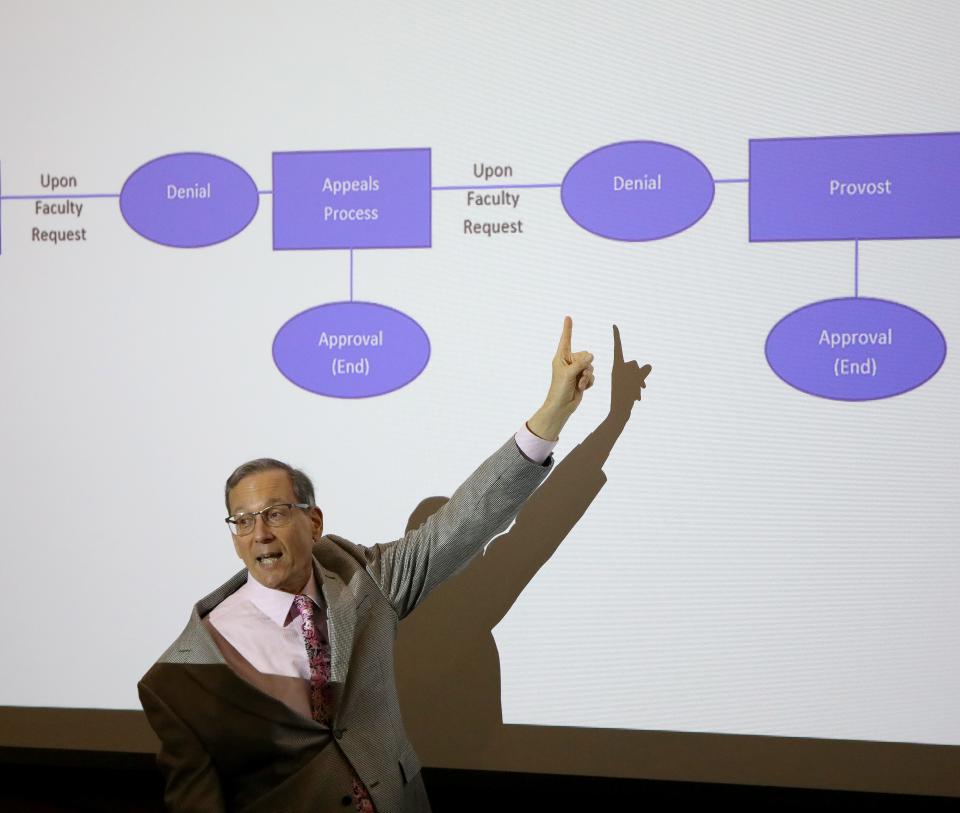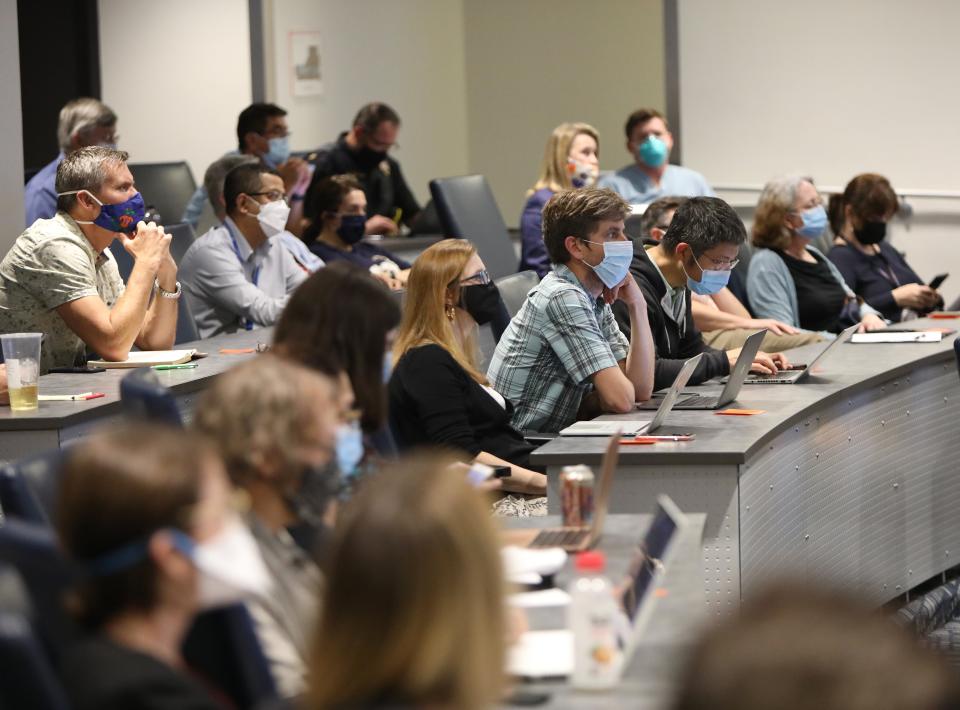Accreditation authority notifies UF of plans to dig deeper into academic freedom concerns
The accrediting authority for colleges and universities in the South is continuing its University of Florida inquiry and sending a special evaluation committee to the institution after determining enough factual information may exist to support "significant noncompliance" with its academic freedom standard.
According to a Wednesday letter sent to UF President W. Kent Fuchs from President Belle S. Wheelan of the Southern Association of Colleges and Schools Commission on Colleges, the special committee will conduct an on-site review determining UF's compliance with the SACSCOC principles of accreditation.
Its findings will then go to the SACSCOC Board of Trustees for a decision on the university's accreditation status.

The committee will review the specific academic freedom standard cited but can extend its focus if evidence of other compliance concerns comes up, the letter stated. Its findings and other documentation will be sent to a Committee on Compliance and Reports, a standing committee of the SACSCOC BOT, for formal review in June 2022.
UF will then get the BOT decision within two weeks of its meeting, the letter said.
Previous coverage: Congressional subcommittee investigating UF over free speech, academic freedom concerns
Another professor speaks out: UF grievance says administration blocked new classes that hint of critical race theory
The development comes after more than a month of nationwide scrutiny over political influence over decisions of UF administrators to block professors from testifying in lawsuits against the state, handling of research data and curriculum development.
The university later reversed its decision on faculty testimony after receiving extensive criticism, allowing professors Dan Smith, Michael McDonald and Sharon Austin to do the legal consulting work on their own time. Six professors have since filed a lawsuit against the university alleging their First Amendment rights were violated when they were blocked from outside work deemed to at odds with the state's interests.

In response to the SACSCOC initial academic freedom inquiry in November, UF sent a special report to the organization stating, "The University of Florida Board of Trustees ensures that the institution is free from undue influence by external persons or bodies through clear and consistently enforced policies and procedures."
On the same day the special report was publicly released, UF also published a report from its task force on outside activities containing 10 policy and procedure recommendations for how UF should respond when employees request approval to serve as expert witnesses in litigation in which their employer, the state of Florida, is a party.
A separate UF Faculty Senate ad hoc committee later released its own 274-page report including claims of pressure to destroy and barriers to publish COVID-19 data, which prompted UF Research and the UF Office of Compliance and Ethics to launch a formal investigation on Dec. 10 over possible violations of its research integrity policy.
Ray Issa, a distinguished professor in UF's Rinker School of Construction Management and chair of the ad hoc committee that put out the long report, noted Thursday afternoon in the university's last Faculty Senate meeting of the year that the committee did not hear allegations of data being destroyed but rather allegations of discussion of data destruction.

UF director of issues management and crisis communications Hessy Fernandez shared a statement from the university Thursday morning saying UF has a shared desire to ensure the preservation and protection of academic freedom.
"To that end, we welcome the pending review by SACSCOC and will cooperate fully with the committee’s work," it read. "In the meantime, the administration and faculty will continue to work hand-in-hand to implement and strengthen policies and transparency in alignment with reports from the Presidential Task Force and the Faculty Senate Ad Hoc Committee on Academic Freedom, critical steps to re-affirm the University of Florida’s commitments to free speech and academic freedom."
Meera Sitharam, vice president of the UF faculty union chapter United Faculty of Florida at the University of Florida, which has called for an external audit of the state of academic freedom on campus, said in an email to The Sun on Thursday that the union supports SACSCOC's decision to investigate further. She also cautioned that the organization's credibility is on the line if it does not do a thorough job.
"The decision to come to campus is important, provided they get to speak candidly with faculty and students who are not chosen by the administration as spokespersons," Sitharam said. "This is very much in the interest of students and parents in the state of Florida. External organizations like SACSCOC ... play an important role as checks and balances against actions that are unduly politically influenced."
Editor's note: The caption with a photograph of Provost Joe Glover was edited after initial publication of this story to clarify that the flow chart relates to faculty engaging in outside activities, not simply making public statements.
This article originally appeared on The Gainesville Sun: Accreditation authority coming to University of Florida for onsite review

